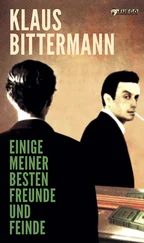Patrick loved her. What did he love? Not her accent, which he was trying hard to alter, though she was often mutinous and unreasonable, declaring in the face of all evidence that she did not have a country accent, everybody talked the way she did. Not her jittery sexual boldness (his relief at her virginity matched hers at his competence). She could make him flinch at a vulgar word, a drawling tone. All the time, moving and speaking, she was destroying herself for him, yet he looked right through her, through all the distractions she was creating, and loved some obedient image that she herself could not see. And his hopes were high. Her accent could be eliminated, her friends could be discredited and removed, her vulgarity could be discouraged.
What about all the rest of her? Energy, laziness, vanity, discontent, ambition? She concealed all that. He had no idea. For all her doubts about him, she never wanted him to fall out of love with her.
They made two trips.
They went to British Columbia, on the train, during the Easter holidays. His parents sent Patrick money for his ticket. He paid for Rose, using up what he had in the bank and borrowing from one of his roommates. He told her not to reveal to his parents that she had not paid for her own ticket. She saw that he meant to conceal that she was poor. He knew nothing about women’s clothes, or he would not have thought that possible. Though she had done the best she could. She had borrowed Dr. Henshawe’s raincoat for the coastal weather. It was a bit long, but otherwise all right, due to Dr. Henshawe’s classically youthful tastes. She had sold more blood and bought a fuzzy angora sweater, peach-colored, which was extremely messy and looked like a small-town girl’s idea of dressing up. She always realized things like that as soon as a purchase was made, not before.
Patrick’s parents lived on Vancouver Island, near Sidney. About half an acre of clipped green lawn — green in the middle of winter; March seemed like the middle of winter to Rose — sloped down to a stone wall and a narrow pebbly beach and salt water. The house was half stone, half stucco-and-timber. It was built in the Tudor style, and others. The windows of the living room, the dining room, the den, all faced the sea, and because of the strong winds that sometimes blew onshore, they were made of thick glass, plate glass Rose supposed, like the windows of the automobile showroom in Hanratty. The seaward wall of the dining room was all windows, curving out in a gentle bay; you looked through the thick curved glass as through the bottom of a bottle. The sideboard too had a curving, gleaming belly, and seemed as big as a boat. Size was noticeable everywhere and particularly thickness. Thickness of towels and rugs and handles of knives and forks, and silences. There was a terrible amount of luxury and unease. After a day or so there Rose became so discouraged that her wrists and ankles felt weak. Picking up her knife and fork was a chore; cutting and chewing the perfect roast beef was almost beyond her; she got short of breath climbing the stairs. She had never known before how some places could choke you off, choke off your very life. She had not known this in spite of a number of very unfriendly places she had been in.
The first morning, Patrick’s mother took her for a walk on the grounds, pointing out the greenhouse, the cottage where “the couple” lived: a charming, ivied, shuttered cottage, bigger than Dr. Henshawe’s house. The couple, the servants, were more gentle-spoken, more discreet and dignified, than anyone Rose could think of in Hanratty, and indeed they were superior in these ways to Patrick’s family.
Patrick’s mother showed her the rose garden, the kitchen garden. There were many low stone walls.
“Patrick built them,” said his mother. She explained anything with an indifference that bordered on distaste. “He built all these walls.”
Rose’s voice came out full of false assurance, eager and inappropriately enthusiastic.
“He must be a true Scot,” she said. Patrick was a Scot, in spite of his name. The Blatchfords had come from Glasgow. “Weren’t the best stonemasons always Scotsmen?” (She had learned quite recently not to say “Scotch.”) “Maybe he had stonemason ancestors.”
She cringed afterward, thinking of these efforts, the pretense of ease and gaiety, as cheap and imitative as her clothes.
“No,” said Patrick’s mother. “No. I don’t think they were stonemasons.” Something like fog went out from her: affront, disapproval, dismay. Rose thought that perhaps she had been offended by the suggestion that her husband’s family might have worked with their hands. When she got to know her better — or had observed her longer; it was impossible to get to know her — she understood that Patrick’s mother disliked anything fanciful, speculative, abstract, in conversation. She would also, of course, dislike Rose’s chatty tone. Any interest beyond the factual consideration of the matter at hand — food, weather, invitations, furniture, servants — seemed to her sloppy, ill-bred, and dangerous. It was all right to say, “This is a warm day,” but not, “This day reminds me of when we used to–” She hated people being reminded.
She was the only child of one of the early lumber barons of Vancouver Island. She had been born in a vanished northern settlement. But whenever Patrick tried to get her to talk about the past, whenever he asked her for the simplest sort of information — what steamers went up the coast, what year was the settlement abandoned, what was the route of the first logging railway — she would say irritably, “I don’t know. How would I know about that?” This irritation was the strongest note that ever got into her words.
Neither did Patrick’s father care for this concern about the past. Many things, most things, about Patrick seemed to strike him as bad signs.
“What do you want to know all that for?” he shouted down the table. He was a short square-shouldered man, red-faced, astonishingly belligerent. Patrick looked like his mother, who was tall, fair, and elegant in the most muted way possible, as if her clothes, her makeup, her style, were chosen with an ideal neutrality in mind.
“Because I am interested in history,” said Patrick in an angry, pompous, but nervously breaking voice.
“Because-I-am-interested-in-history,” said his sister Marion in an immediate parody, break and all. “History!”
The sisters Joan and Marion were younger than Patrick, older than Rose. Unlike Patrick they showed no nervousness, no cracks in self-satisfaction. At an earlier meal they had questioned Rose.
“Do you ride?”
“No.”
“Do you sail?”
“No.”
“Play tennis? Play golf? Play badminton?”
No. No. No.
“Perhaps she is an intellectual genius, like Patrick,” the father said. And Patrick, to Rose’s horror and embarrassment, began to shout at the table in general an account of her scholarships and prizes. What did he hope for? Was he so witless as to think such bragging would subdue them, would bring out anything but further scorn? Against Patrick, against his shouted boasts, his contempt for sports and television, his so-called intellectual interests, the family seemed united. But this alliance was only temporary. The father’s dislike of his daughters was minor only in comparison with his dislike of Patrick. He railed at them too, when he could spare a moment; he jeered at the amount of time they spent at their games, complained about the cost of their equipment, their boats, their horses. And they wrangled with each other on obscure questions of scores and borrowings and damages. All complained to the mother about the food, which was plentiful and delicious. The mother spoke as little as possible to anyone and to tell the truth Rose did not blame her. She had never imagined so much true malevolence collected in one place. Billy Pope was a bigot and a grumbler, Flo was capricious, unjust, and gossipy, her father, when he was alive, had been capable of cold judgments and unremitting disapproval; but compared to Patrick’s family, all Rose’s people seemed jovial and content.
Читать дальше












